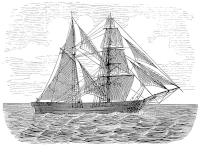I have recently taken part in a series of online meetings organised to read and discuss Melville’s long poem Clarel, A Poem and Pilgrimage in the Holy Land. It was a sort of reading group for Melville enthusiasts, where each week we would individually read a number of cantos of Melville’s poem to then meet on Sunday (afternoon US time, 11 pm Italian time) to discuss them.

The poem is one of the longest in Anglo-American literature, and often keeps even the most enthusiastic melvilleans away because of its sometimes complex syntax and obscure references. However, this group was clearly of a different opinion, and shared with me the love for this lesser-known work by Melville, one that I believe to be as fine as (if not at times even more fascinating than) his masterpiece Moby-Dick.
I have to admit that reading the poem at the pace required by the weekly meetings was not easy, but luckily this was my second reading, so I was able to follow the conversation even if I had not had time to re-read the given part for that week. Also, I had some notes from my first reading that I could go to in order to refresh my memory or contribute (very little to be honest) to the conversation. So although the matter was very challenging for me, and I often found myself realising that something I had interpreted in one way made a totally different impression on other readers, I thoroughly enjoyed the experience.
It not only gave me the opportunity to chat to other melvilleans (of which I can’t find many where I live) and to share my love for the writings of this great author and poet, but it also deepened my knowledge of Clarel, as well as of the inner workings of Melville’s poetry. Some of the participants have been studying the poem for years, and therefore could provide insights into the structure of verses or the fine use of language that would otherwise have completely escaped me.
Being that Clarel was going to be the object of my PhD research, besides being very enjoyable this reading group happened at the exact moment I needed it: when I was thirsty for learning more about the poem and for delving deeper into its many references and nuances, but was denied a chance to do that by the Italian universities I applied to. I now believe even more than before that studying Clarel would have been a fantastic adventure, tiring and full of hurdles for sure, but nonetheless marvellous and unforgettable. So it was great to have a chance to re-read and better understand this wonderful piece of art, and most of all to get the motivation to pick up all the books I have collected on and around the poem and do some studying on my own.
